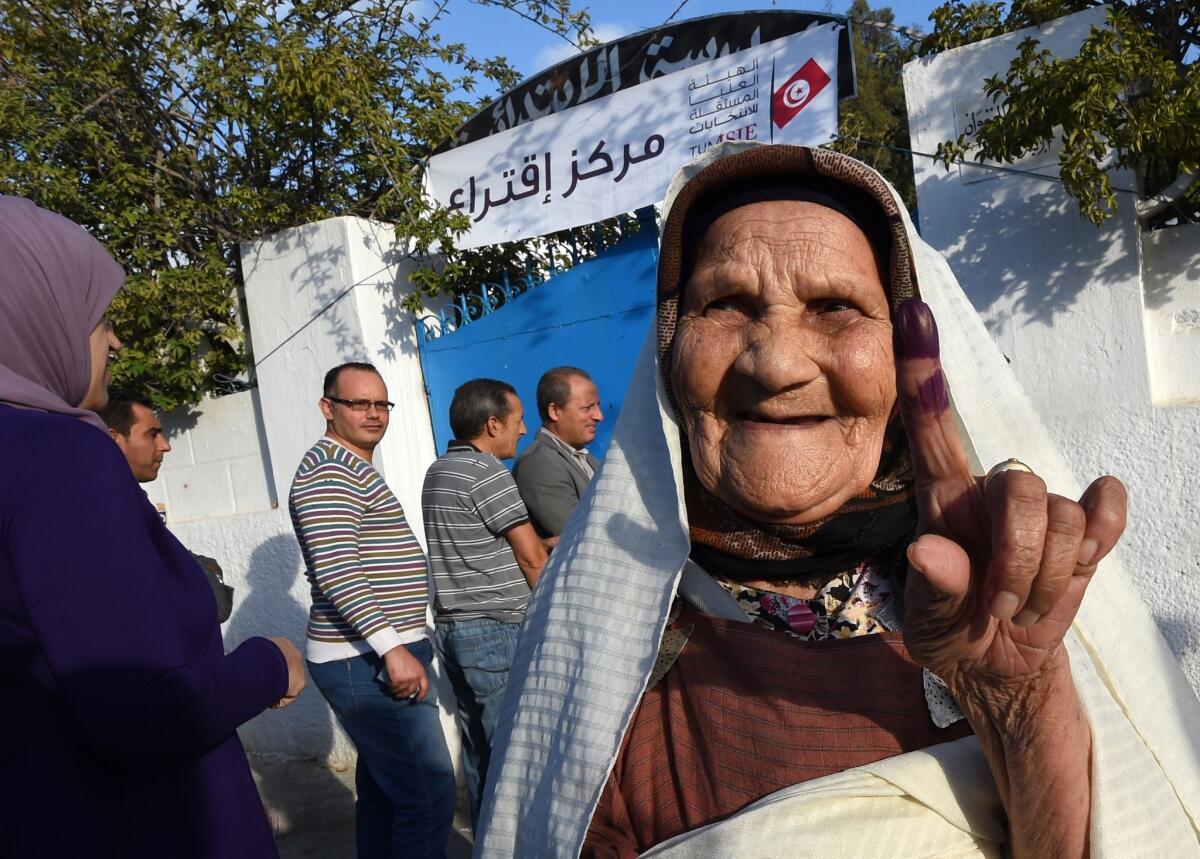Tunisia sees solid turnout in parliamentary vote

reporting from TUNIS, Tunisia — Tunisians went to the polls Sunday to choose a new parliament, continuing a democratic transition in the wake of their revolution that kicked off the 2011 “Arab Spring” uprisings.
Although the North African nation has had its share of troubles since ejecting a longtime dictator, Tunisia is generally seen as having the brightest democratic prospects among the countries where popular revolts three years ago targeted authoritarian regimes.
Turnout appeared solid, but without the winding queues and tears of emotion that marked the 2011 election for the constituent assembly, several months after the ouster of President Zine el Abidine ben Ali. Even so, the mood among many was buoyant.
“It’s great for me. It’s the first time I feel excited,” said Habiba Nawar, casting a ballot at the Bousselsla polling station in La Marsa, a wealthy suburb of Tunis. “Previously we had only one person to choose from.”
Others were disillusioned by the course the country has taken since Ben Ali was driven from power. High unemployment, security fears, economic woes and political deadlock damped the enthusiasm of some voters.
“Before, it was a police state; now it’s a stupid state,” said Lamine Med Yassine, from the southeastern industrial town of Gabes.
The results were expected to be more evenly spread than in the 2011 election, which saw the Islamist party Nahda take the largest share of the votes. Since then a major secularist group, Nidaa Tounes, has emerged, drawing support from the secular middle class. Aside from the two main rivals, a range of smaller parties has arisen and could prove important power brokers in coalition negotiations.
The parliament will determine the makeup of what is widely expected to be a unity government, to avoid the political polarization that beset the country for much of 2013.
Presidential balloting is set to take place next month.
Sunday’s vote was mainly peaceful, despite some preelection violence. A police raid Friday on a suspected militant safe house left six people dead. The government said those killed were terrorists.
At the start of voting, a few technical glitches emerged. Some voters arrived to find they were not on the voter registries, and some polling stations opened late.
Unofficial preliminary results were expected by Monday, with official results in midweek.
Ryan is a special correspondent. Staff writer Laura King in Cairo contributed to this report.
More to Read
Sign up for Essential California
The most important California stories and recommendations in your inbox every morning.
You may occasionally receive promotional content from the Los Angeles Times.










